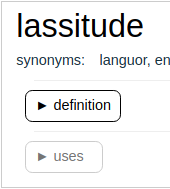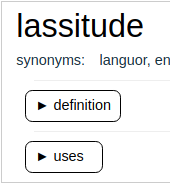How are the vocabulary words selected?
Anything that makes reading comprehension easier is fair game. The list includes not just general vocabulary, but also foods, places, people, fashions, animals, etc. Since ajvocab.com is intended for the "average Joe" there are certain terms we ignore/include:
- We skip most high school vocabulary words, but there is some overlap. In the next few months the plan is to release a list of "core vocab" words that are frequently encountered in literature; words which every English speaker should know—and many of these are high school vocabulary words.
- The 50 US states and major US cities are not covered.
- Common, modern, American idioms and slang are not covered.
- Major countries are not defined, it is assumed they are known. There are other resources if you need to brush up.
- Familiar city names, such as Stockholm and Liverpool, are often included because, although everyone knows that these cities are in Sweden and England respectively, they often do not know exactly where (actually Raphael Andres' awesome photo of Stockholm is reason enough to include the definition for that city).
- Vocabulary for British words, slang, idioms, and geography is extensively covered (we were both baffled when we first encountered the word sleeper as used in Tolstoy's Anna Karenina).
- Our vocabulary collections also cover some French, Latin, and occasionally other languages. Note that it was especially common in the eighteenth century for authors to pepper their novels with Latin and French—so it helps to know at least some.

